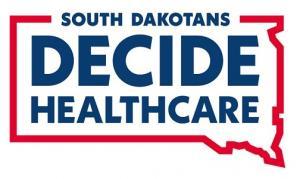South Dakotans become seventh red state residents to tell their legislators to suck it on Medicaid expansion!

Back in January 2021, I. noted that:
...over the past few years, the voters of some of those states have decided to take it upon themselves to force their legislators/governors to expand Medicaid anyway, via statewide ballot initiative campaigns:
- Maine: 2017 (though it didn't actually go into effect until 2019 due to the former GOP Governor refusing to implement it)
- Nebraska: 2020 (it went into effect in October though some elements are supposed to start in April)
- Utah: 2018 (though it didn't go into effect until 2020 after some absurd shenanigans by the state legislature & governor to attempt to partly undermine the program)
- Idaho: 2018 (though it didn't actually go into effect until 2020)
- Missouri: 2020 (it's scheduled to go into effect in July)
- Oklahoma: 2020 (it's scheduled to go into effect in July)
That left 12 holdout states...technically 13 at the time, as the Missouri legislature was still refusing to fund Medicaid expansion there even though the ballot proposal was not only solidly approved, but also baked expansion into the state constitution. It was even more insane as it wouldn't even have cost the state a dime for the first few years thanks to the American Rescue Plan).
Thankfully, both Oklahoma and (eventually) Missouri did indeed implement their expansion programs in 2021, even if Missouri's legislature had to be dragged kicking & screaming into doing so.
At the time, a Bloomberg News story stated that residents of only 3 holdout states (Florida, Mississippi and South Dakota) had the option of putting a similar ballot proposal up for a vote.
Well, activists in South Dakota did just that:
Right now, Washington politicians send South Dakota’s Medicaid dollars to California, New York, and 36 other states to pay for their healthcare instead. That needs to change. It’s time to bring our tax dollars home for healthcare and jobs here — just like North Dakota, Oklahoma, and Idaho have all done recently.
Medicaid expansion would put hundreds of millions of dollars back into our local economy. For hardworking families, it means access to healthcare, less money spent paying off medical bills, and more money available to spend in our local small businesses.
In rural communities, it also means more healthcare jobs and the chance to protect emergency care for our families. Eleven rural hospitals in our state are now at risk of closure. Medicaid expansion will help keep these facilities open for when our families need them most — whether that’s a loved one having a heart attack or suffering a serious injury on the farm.
That’s why doctors, nurses, farmers, small businesses and so many South Dakota organizations are endorsing this campaign to put Medicaid expansion on the ballot. We have the support of one of the broadest coalitions to ever launch a ballot initiative in this state, and we’re just getting started.
It was smart of them to remind SD residents that a bunch of other deep red states had also expanded Medicaid.
The exact number of South Dakotans eligible varies depending on your source; the Bloomberg article from January 2021 put it at 43,000, while the Kaiser Family Foundation estimated the number of SD residents in the "Medicaid Gap" at 16,000, plus another 11,000 who are currently eligible for heavily-subsidized ACA exchange plans but who would still be far better off enrolled in Medicaid if the state expanded it, or around 27,000 total.
Either way, that's tens of thousands more people who'd become eligible in a state with only 886,000 residents total, or anywhere from 3 - 5% of the population.
As for the cost to the state (10% of the total each year), again, according to the Kaiser Famly Foundation, that would be nothing for the first 3-4 years, thanks to the American Rescue Plan's Medicaid expansion "inducement" provision (aka, a big fat bribe to the remaining states to do the right thing).
Cut to November 8, 2022 (via Politico):
South Dakota voters on Tuesday approved a measure to expand the state’s Medicaid program under the Affordable Care Act.
The program, which takes effect in July and is expected to cover more than 40,000 people, passed with about 56 percent support.
The Republican-controlled state, where lawmakers have long resisted Medicaid expansion, is the seventh in the last five years to do so at the ballot box — and likely the last to do so for some time.
“We are thrilled by this victory, which took years of work, coalition building, and organizing to achieve,” said Kelly Hall, executive director of the Fairness Project, which helped pass the ballot measure. “Citizens took matters into their own hands to pass Medicaid expansion via ballot measure — showing us once again that if politicians won’t do their job, their constituents will step up and do it for them.”
Opponents of Medicaid expansion tried to make passage of the ballot measure more difficult through a June initiative, Amendment C, that would have raised the voter approval threshold to 60 percent. That measure was overwhelmingly defeated.
Mazel Tov to South Dakotans!
This leaves 11 states which still haven't expanded Medicaid under the ACA over 12 years after it was signed into law. Here they are, along with the Kaiser Family Foundation's 2021 estimate of how many residents would likely be eligible for Medicaid coverage if they did so:
- Alabama (~204K)
- Florida (~790K)
- Georgia (~453K)
- Kansas (~82K)
- Mississippi (~166K)
- North Carolina (~373K)
- South Carolina (~189K)
- Tennessee (~226K)
- Texas (~1.43M)
- Wisconsin (~30K)*
- Wyoming (~15K)
*Wisconsin is a special case--they partially expanded Medicaid via a different legal process years ago, but only up to 100% of the Federal Poverty Level, which means technically there's no Medicaid Gap there, but there are still around 30,000 residents currently eligible for heavily-subsidized ACA exchange plans who would become eligible for Medicaid instead.



